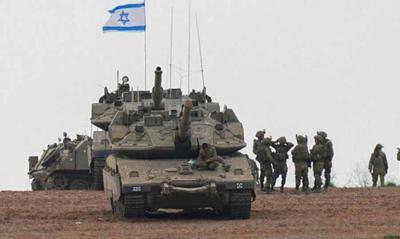With the escalation of Israeli operations against Hezbollah, particularly the assassination of its leaders, and a notable security breach that surpasses Israel's incursion into Hamas, I believe that if a new war occurs between Israel and Hezbollah, it will be the last and harshest one, as mentioned in "Asharq Al-Awsat." A war between Israel and Hezbollah, following the Gaza conflict, means a severe confrontation with the West and the international community as a whole. If the Israeli generals proceed with this, and I will not say Netanyahu alone, it indicates that it will be a brutal war.
At this point, the reader may ask: how? What we witnessed in Israeli brutality in Gaza had clear implications, suggesting that Israel, after Operation Deluge, is akin to the United States after the events of September 11—an enraged bull that led to the downfall of Saddam Hussein's regime and the Taliban. Through this criminal brutality, Israel aims to restore its deterrence stature and ensure that Hamas does not return to control Gaza, which it has avenged with destruction. Israel is engaged in this war amid conflict with the international community, led by the United States.
Consequently, a genuine war between Israel and Hezbollah now means it will be more brutal, with Israel approaching it with the mindset that this must be the last war between them and Hezbollah, as what follows would be a war with Iran.
Today, Israel has temporarily removed Gaza as a front used by Iran through Hamas and other factions, awaiting political solutions. Will Lebanon's situation be any better? I do not think so, because Israel also wants to eliminate the Hezbollah front and destroy it in preparation for a confrontation with Iran.
Israeli Defense Minister Yoav Galant had previously stated that the Air Force planes flying in Lebanese airspace carry heavier bombs for farther targets, adding: We have escalated against Hezbollah to a degree out of 10 in what we can do. He mentioned: We can attack not only 20 kilometers deep but also 50 kilometers, targeting Beirut and anywhere else, implying Syria. Hence, we see the Iranian calm in Syria following the strike on the Tehran consulate there, despite ongoing Israeli operations in Syria.
This Iranian calm suggests that Tehran has fully understood the danger of what is happening and has resorted to quietness out of fear for the regime in Syria and for Hezbollah. This represents a strategic danger for Iran, as Hezbollah is its first line of defense against Israel.
Therefore, if a war occurs between Israel and Hezbollah, it will be the harshest, genuinely devastating—not merely a restoration of deterrence or a rebalancing, but a fatal chess move to eliminate a rook or something of equivalent importance.
It seems that both Iran and Hezbollah understand this, which is why Hezbollah endures all these strikes, particularly the assassination attempts resulting from embarrassing breaches that have put the party's support base in a state of unrest and anxiety.
What is happening in southern Lebanon is a real threat, and it is certain that the Israelis now see Iran's point of strength in the region has become its point of weakness, namely Hezbollah. The story is not just about Hassan Nasrallah's wisdom, but rather Netanyahu's desire for political survival. Anyone who challenges Biden politically will not hesitate to confront Hassan Nasrallah militarily, according to "Asharq Al-Awsat."




